Newly discovered animal species in the last year
It's a whole new world

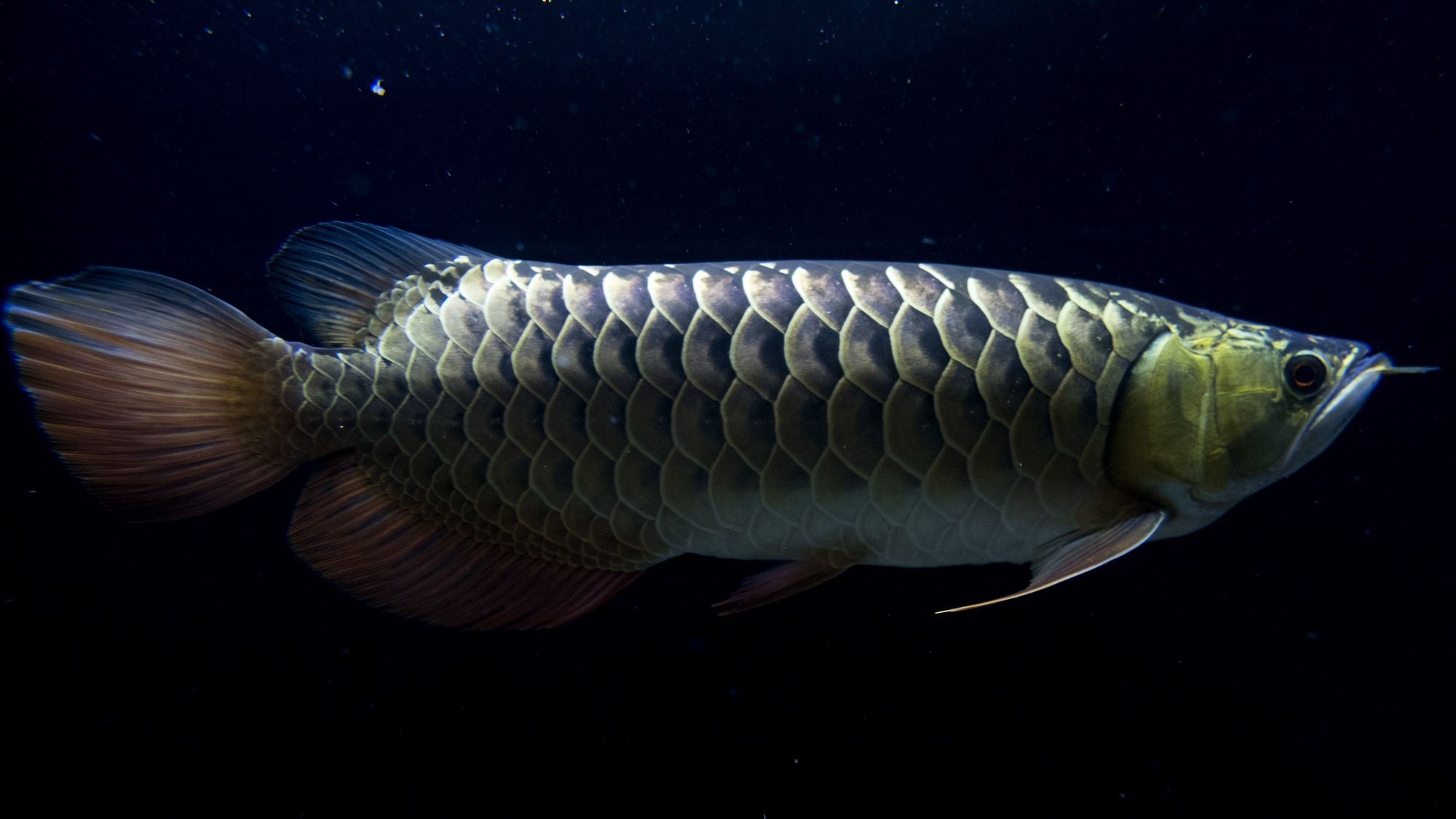
A free daily email with the biggest news stories of the day – and the best features from TheWeek.com
You are now subscribed
Your newsletter sign-up was successful
So many places on Earth still remain a mystery to us, even after all this time — but researchers are often discovering new species. Better access to genetic testing, as well as technological advances that allow us to explore deep in the ocean or remote parts of the world, have made finding previously unknown species a whole lot easier. Here are some of the most exciting species discovered in the past year.
Banded dragonfish
Scientists have discovered a new species of Antarctic dragonfish called a banded dragonfish (Akarotaxis gouldae) and published their findings in the journal Zootaxa. The fish was originally (and mistakenly) thought to be of a species that is closely related, but had already been discovered. "There are two distinct bands on the sides of adult Akarotaxis gouldae that are not present on Akarotaxis nudiceps, so we were surprised that the species already existed in collections but had been previously overlooked," Andrew Corso, the lead author of the study, said in a release. "In the world of fish taxonomy, it's becoming common to distinguish species with genetics alone."
The species of fish lives deep in the Antarctic Ocean, making it difficult to find. Varieties of dragonfish are also largely isolated. "We hypothesize that a population of dragonfish may have become isolated within deep trenches under glaciers, surviving on food pushed in by the moving ice," said Corso. "Once the glaciers retreated, this subpopulation had become distinct enough to be reproductively incompatible with Akarotaxis nudiceps," creating a new species. The Akarotaxis gouldae exists in a smaller range than other, comparable species.
The Week
Escape your echo chamber. Get the facts behind the news, plus analysis from multiple perspectives.

Sign up for The Week's Free Newsletters
From our morning news briefing to a weekly Good News Newsletter, get the best of The Week delivered directly to your inbox.
From our morning news briefing to a weekly Good News Newsletter, get the best of The Week delivered directly to your inbox.
Soft-furred hedgehogs
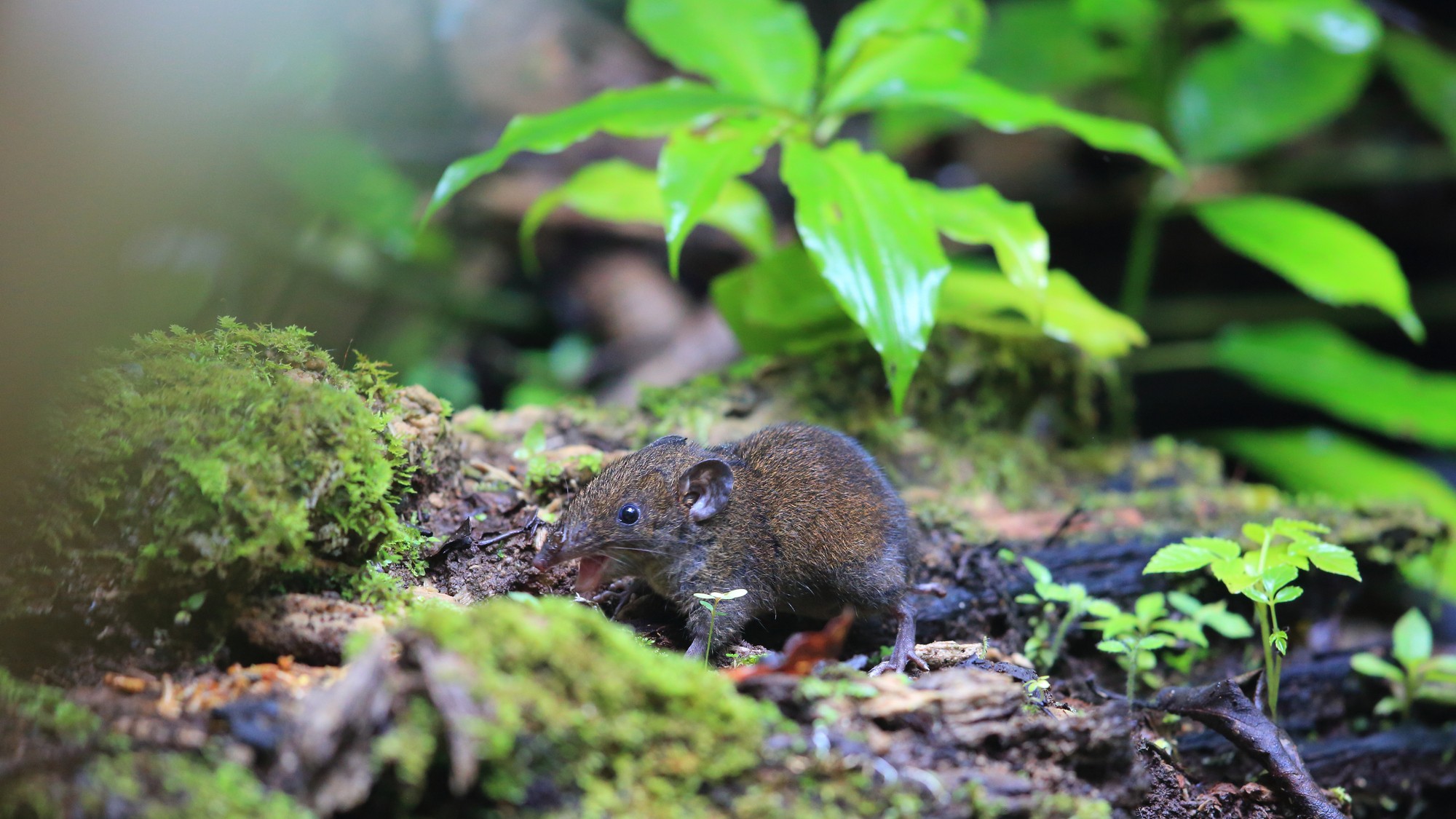
Hylomys suillus is a soft-furred hedgehog of the same genus as the discovered species
Five new species of hedgehogs were identified in Southeast Asia, according to research published in the Zoological Journal of the Linnean Society. The animals are part of a group of hedgehogs called Hylomys, which are "small, long-nosed mammals and, while they are members of the same family as the more familiar hedgehog, are furry rather than spiny," said the BBC. Previously, there were only two known species of soft-furred hedgehogs — but with the new discovery, the total is up to seven. Two of the species were newly discovered, while three of them that were once thought to be subspecies were found to be distinct enough to be separate species.
"Their skulls are really cool — they're tiny, but they have these really sharp teeth," Melissa Hawkins, one of the lead researchers of the study, said to the BBC. One of the discovered species has particularly long fangs, so it was named Hylomys macarong, derived from the Vietnamese word for "vampire." The other discovered species was the Hylomys vorax. The three that were deemed to be separate species were the Hylomys dorsalis, Hylomys maxi and the Hylomys peguensis.
Mabu bush viper
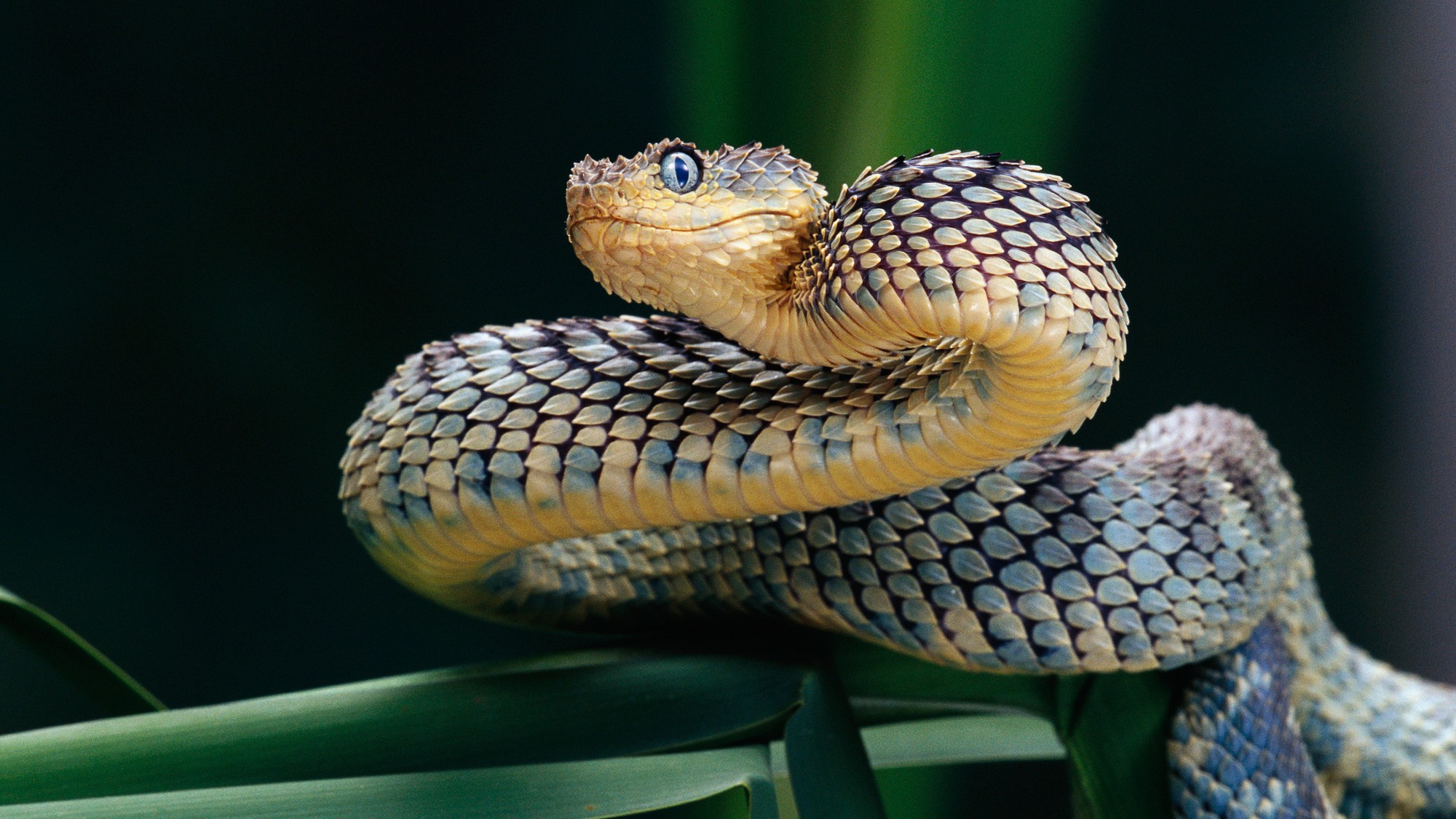
A bush viper of the Atheris genus
Scientists discovered hundreds of new species in the South East Africa Montane Archipelago (SEAMA). One of them is the Mabu bush viper (Atheris mabuensis). The viper is the "sole representative of the genus from the SEAMA," and "diverged from its East Africa sister taxa approximately 15 million years ago," said a study published in the journal Scientific Reports. "The ecoregion is fragmented across small isolated pockets of rainforest, montane grasslands and shrublands, each with their own unique, but distantly related, plants and animals," said herpetologist Harith Farooq, a study co-author, in a statement.
"Endemic taxa include 127 plants, 45 vertebrates (amphibians, reptiles, birds, mammals) and 45 invertebrate species (butterflies, freshwater crabs), and two endemic genera of plants and reptiles," said the study. Scientists believe that the species found in the region are endemic and not present anywhere else on Earth. "There is so much more to discover, but many of these species may go extinct before we can record them," said Farooq.
A free daily email with the biggest news stories of the day – and the best features from TheWeek.com
Deep sea octopuses
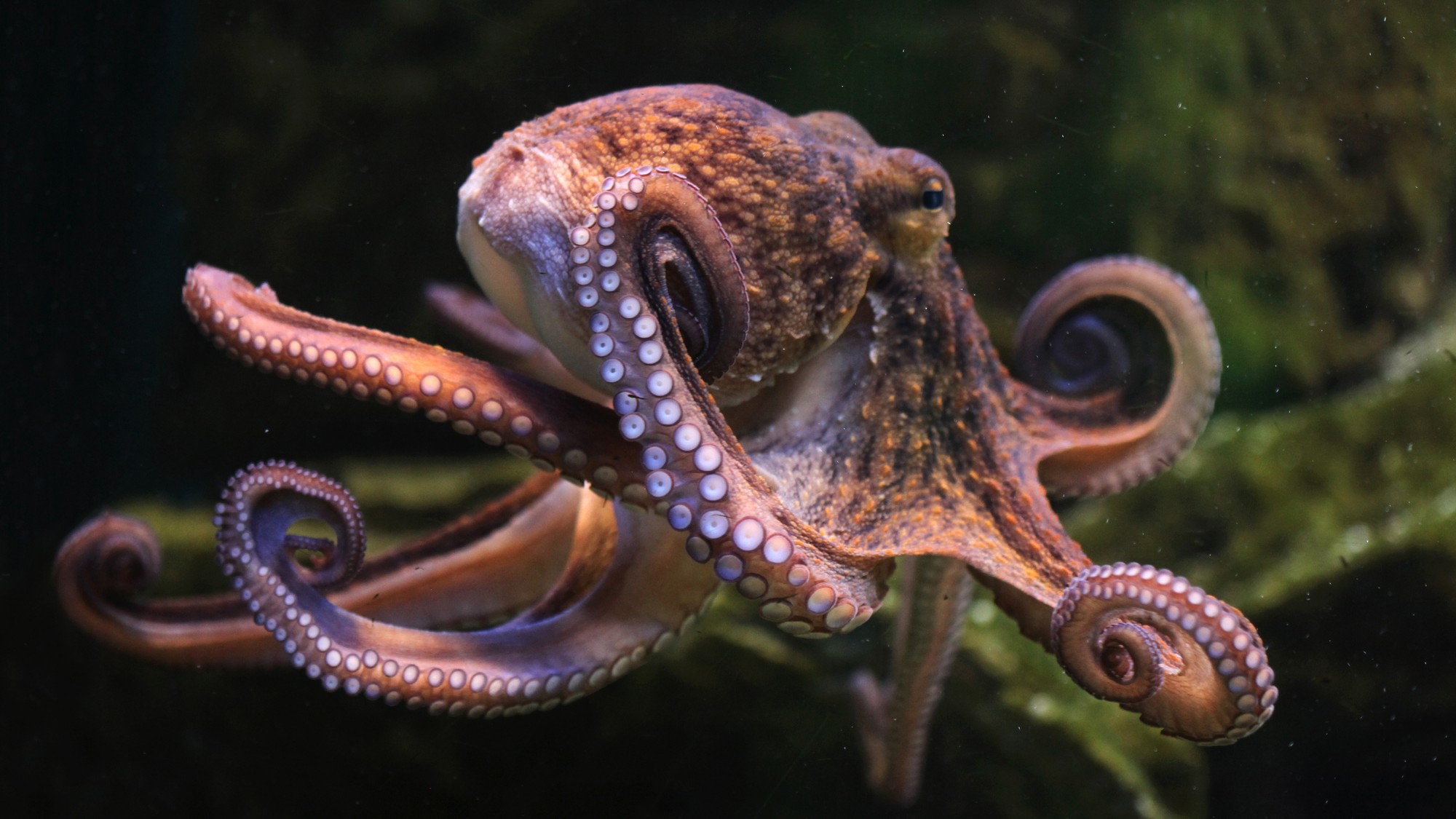
Common octopus (Octopus vulgaris) in the ocean
Off the coast of Costa Rica, scientists found four new species of octopuses. "Finding four new species of octopuses on just two expeditions is exciting, revealing some of the rich biodiversity of the deep sea and hinting at how much more waits to be discovered," Jim Barry, a deep-sea ecologist at the Monterey Bay Aquarium Research Institute, said to Scientific American. One of the new octopuses is a new species of the genus Muusoctopus and will be called the Dorado Octopus.
"Of the four new Costa Rica species, only the Dorado octopus was observed brooding their eggs at hydrothermal springs," said a press release. "The discovery adds to evidence that the Muusoctopus genus has evolved to brood their eggs in warm springs on the seafloor." Two of the other discovered species are also of the genus Muusoctopus, while the fourth was different, but may be of the genus Graneledone.
Deep sea porter crab
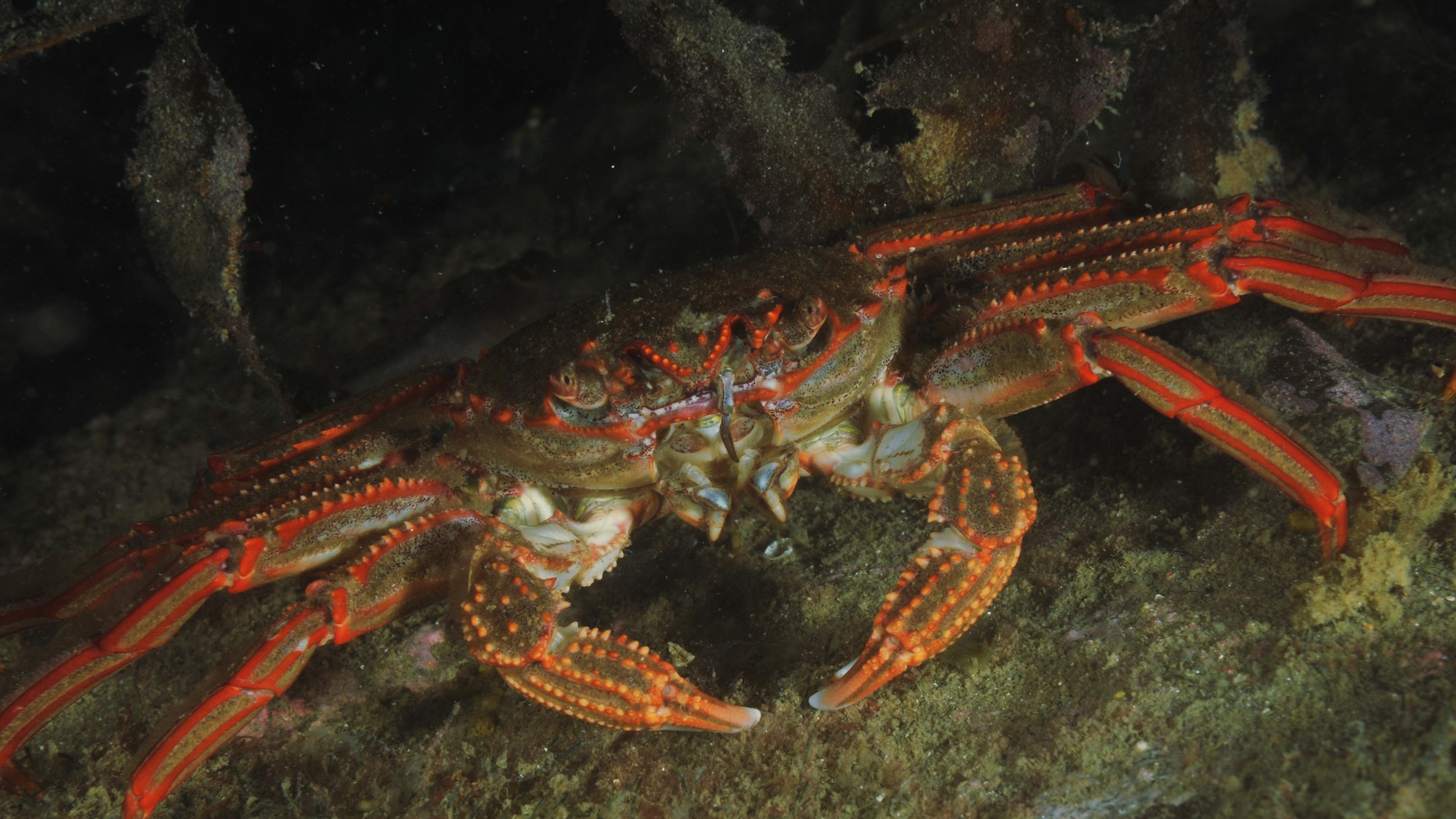
Red rock crab (Plagusia chabrus) in ocean
A new species of crab called the Gordonopsis mazupo was discovered in the South China Sea, according to a study published in the journal Raffles Bulletin of Zoology. While similar to another species of crab, G. mazupo could "easily be distinguished by the proportions of the rostrum and pseudorostral spines, long ambulatory legs with a different armature and differently structured gonopods," said the study. The species was named after the "Chinese Goddess or Grandmother of the Sea, Mazu."
So far, only one crab of the new species has been found, and this is only the second known species of porter crab found in the South China Sea; it's also relatively larger than similar species of crabs. It is not yet clear whether the species is endangered or threatened.
Devika Rao has worked as a staff writer at The Week since 2022, covering science, the environment, climate and business. She previously worked as a policy associate for a nonprofit organization advocating for environmental action from a business perspective.
-
 ‘Restaurateurs have become millionaires’
‘Restaurateurs have become millionaires’Instant Opinion Opinion, comment and editorials of the day
-
 Earth is rapidly approaching a ‘hothouse’ trajectory of warming
Earth is rapidly approaching a ‘hothouse’ trajectory of warmingThe explainer It may become impossible to fix
-
 Health insurance: Premiums soar as ACA subsidies end
Health insurance: Premiums soar as ACA subsidies endFeature 1.4 million people have dropped coverage
-
 AI surgical tools might be injuring patients
AI surgical tools might be injuring patientsUnder the Radar More than 1,300 AI-assisted medical devices have FDA approval
-
 Russia’s ‘cyborg’ spy pigeons
Russia’s ‘cyborg’ spy pigeonsUnder the Radar Moscow neurotech company with Kremlin-linked funding claims to implant neural chips in birds’ brains to control their flight, and create ‘bio-drones’
-
 How roadkill is a surprising boon to scientific research
How roadkill is a surprising boon to scientific researchUnder the radar We can learn from animals without trapping and capturing them
-
 NASA’s lunar rocket is surrounded by safety concerns
NASA’s lunar rocket is surrounded by safety concernsThe Explainer The agency hopes to launch a new mission to the moon in the coming months
-
 The world’s oldest rock art paints a picture of human migration
The world’s oldest rock art paints a picture of human migrationUnder the Radar The art is believed to be over 67,000 years old
-
 Moon dust has earthly elements thanks to a magnetic bridge
Moon dust has earthly elements thanks to a magnetic bridgeUnder the radar The substances could help supply a lunar base
-
 The ocean is getting more acidic — and harming sharks’ teeth
The ocean is getting more acidic — and harming sharks’ teethUnder the Radar ‘There is a corrosion effect on sharks’ teeth,’ the study’s author said
-
 Cows can use tools, scientists report
Cows can use tools, scientists reportSpeed Read The discovery builds on Jane Goodall’s research from the 1960s
